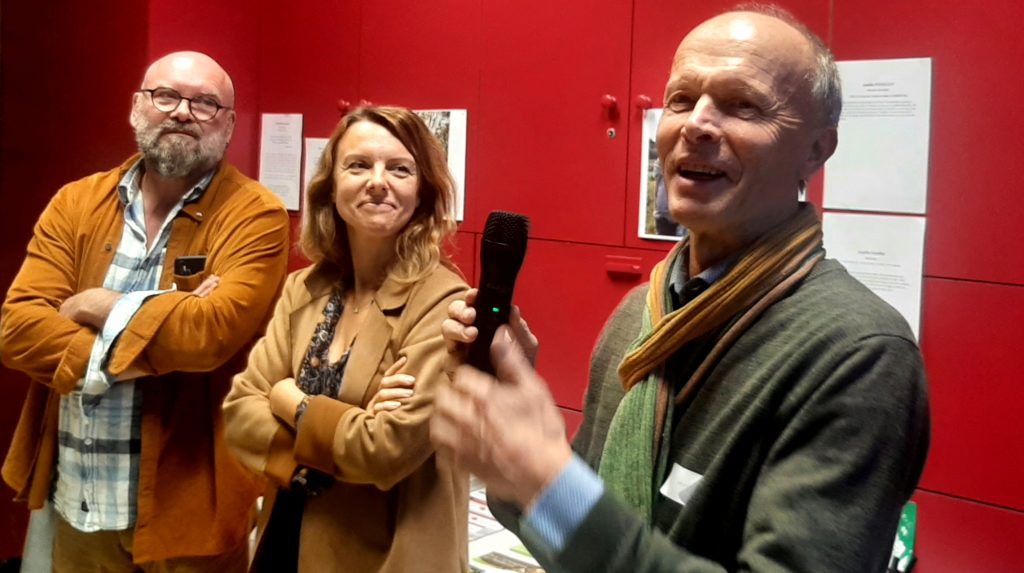
Intro
A recent rural resilience gathering in the Loire-Atlantique, France saw farmers, cooks, elected officials, analysts, rural activists, volunteers and others drawn from the local and European agroecology and rural resilience movements, meet to work on the future of the socio-ecological transition. Organised by ARC’s team on the ground in France via the Nos Campagnes en Résilience team, and other partners including the national Cooks Alliance, deep dive think-ins and on-farm mixed events were accompanied by trips to a machinery coop, a progressive municipality and a learning institution. Oliver Moore has some personal observations on his time there.
Takeaways
From a community perspective, regional resilience, in a context of wider social and ecological transition, can involve at least some of the following:
Building personal and community wellbeing.
Carefully and strategically developing relationships with municipal, institutional and wider political levels.
Finding and developing opportunities for cooperation at all levels of the agri-food and rural political spheres.
Developing a deep, honest culture of critical engagement and alliance building.
Personal and community wellbeing
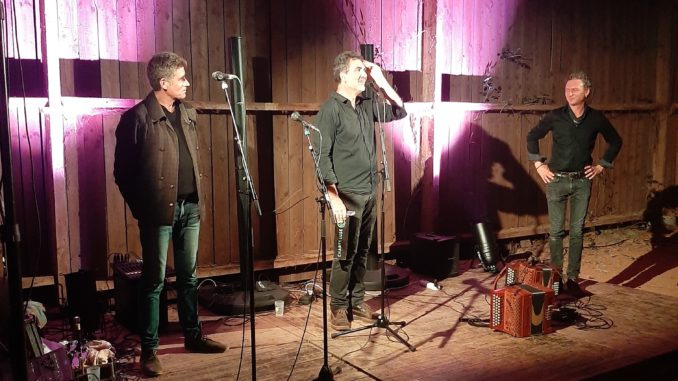
Farming within the current economic model usually means getting bigger, going into debt, specialising, using heavy agri-industrial inputs, and being locked into the system based on the machinery, the buildings, the borrowings, and the production systems adopted. All of this happens in a context of rural depopulation and increasing isolation for the few farmers left, as rural areas are abandoned.
But it doesn’t have to be like this. Again and again, we encountered different approaches to personal and community wellbeing. Farmers from La Ferme des 7 Chemins have a good life – for themselves and their community. One of 45,000 cooperatively owned farms in France, the three associates here, along with one employee, work hard but also have holidays and hobbies. Their hobbies are manifest at on farm events, where the community gathers and listens to them sing – literally.
Moreover, it was heartening to see cooks do their work on the land, in the buildings of the farm. These interactions let relationships deepen, as the cooks use the products from the farm to feed people. New farmers come into the fold with new ideas for diverse activities and incomes – at La Ferme des 7 Chemins, there will soon be 4 associates as an intern specialising in pigs joins the cooperative.
Synergies
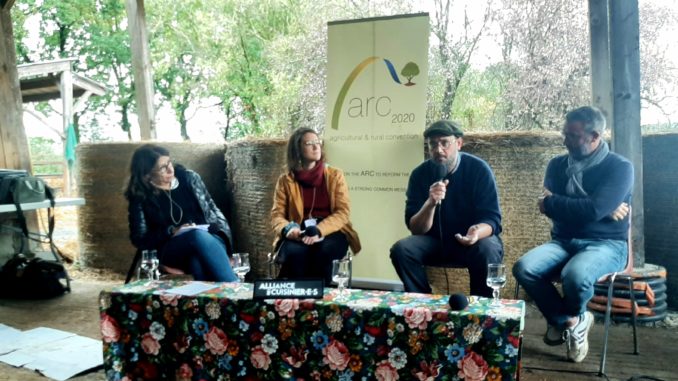
When a community looks after itself in a way that is cognisant of the deep socio-ecological problems of the world, we inevitably see institutional relationship building, cooperation and alliance building.
And when a real effort is made to deal with the long legacy of race, class and gender, personal wellbeing also comes to the fore.
One straightforward example stood out for the weekend, at the Cooks Alliance event held on the farm. As women farmers increase in numbers, they start to ask new questions – like why are the bags used on the farm 50kg in weight? Then the men start to wonder why they have been lifting 50kg bags all their life too. When more people have a way and a say, those already at the table can benefit too.
Carefully and strategically developing relationships with municipal, institutional and wider political levels.
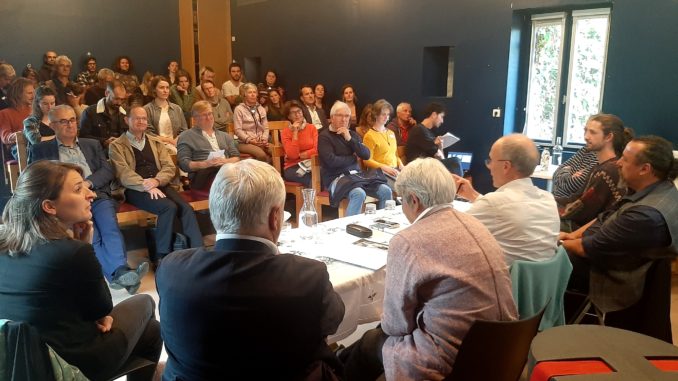
When wider policy, at national or EU level, is not fit for purpose, places like Plessé show it is possible to enable the local and regional/territorial level. We saw evidence of how carefully developing relationships and structures with the municipal, institutional and political levels can work.
Carefully is the key word here – powerful political players can inhibit as well as enable, as the Redon Sustainable Food Consortium found. At the same time, the progressive municipality of Plessé has seen the development of multi-stakeholder initiatives such as the PAAC (la Politique agricole et alimentaire communale), the local agriculture and food policy which aims to prevent the loss of local farmland, and runs initiatives like succession cafes. Underpinning this, La Moulinette Plesséenne, is a bottom up re-iteration of the SDGs, which defines the context for the PAAC.
There are opportunities and constraints in the institutions we encountered. SAFERs (Sociétés d’aménagement foncier et d’établissement rural) assess potential land sales for their impact in advance of any sale. GAECs (Groupement Agricole d’Exploitation en Commun) allow for new ownership models of farms beyond the traditional family farm model; SCOP (Société Coopérative Ouvrière de Production) allows food processors to form cooperative structures, Terre de Liens takes in land and makes it available for agroecological farmers, and CIVAM (Centres d’initiatives pour valoriser l’agriculture et le milieu rural) enables innovative trainings for people interested in, for example, local food for local people.
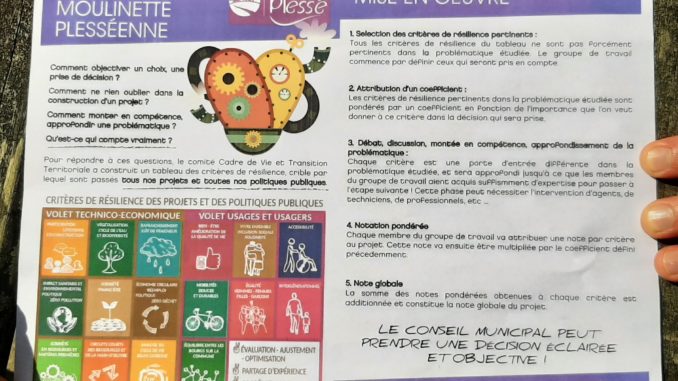
All of these offer opportunities for engagement and making progress. In short, many places around Europe do not have a process to try to manage land sales, or succession, with some thinking about local impacts beyond pure profit; or relatively accessible legal structures to allow for cooperative ownership beyond the standard family farming model, or to do similarly for eateries; or progressive training ongoing for decades; or hubs for reducing costs and maximising farming efficiencies collectively.
Twice, at the Cooks Alliance event, we heard of happy cooks who had moved beyond the hero-chef model of either family labour exploitation or the harsh pure-profit driven realities of large restaurants, over into an alternative of not-for-profit community eateries. Importantly, these were in institutional settings, in these cases municipal theatres with restaurants in the building under the stewardship of the local authorities.
Here, collective partnerships were possible, between farmers and cooks, while the non-profit status and municipal underpinning in effect made an anchor for transition of the institution.
All of this is not to avoid the wider level. Beyond these initiatives, there are national and EU level opportunities that come downstream, including via LEADER, European innovation Partnerships, and cooperation projects in CAP. All levels provide opportunities, but at all levels, we must engage thoughtfully and strategically, aware of the risks and power cleavages that can both enable and constrain.
This work is important in part because of the unavoidable issue of access to land. While some places in Europe have a very high level of farmland rented, others have higher ownership percentages. Eitherways, the potential to sell off land for profit means that anything other than capping values often just adds to rental costs (capitalisation) and thus in the end acts as a barrier to entry. In other words, it’s simply unavailable or unaffordable for most.
To this end, though the SAFER land sale assessment approach is controversial, contested and the source of some frustration in France, it is nevertheless better to be arguing about it than not even having a process, as is the case in so much of Europe.
Find and develop opportunities for cooperation at all levels of the agri-food and rural political spheres.
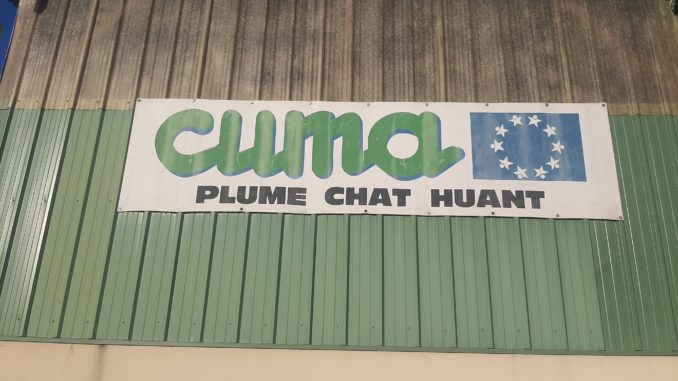
Building a culture of mutual aid can build resilient communities. There are again opportunities and constraints. The CUMA machinery coops are a fascinating example of farmers working together, pooling skills and equipment, in a way that does not happen on this scale elsewhere in Europe.
We learned that there are 202,000 members of CUMAs in France, and in this Department – Loire-Atlantique, there are 180 CUMAs which have 5000 members and 220 employees.
Machinery, when purchased by an initiative on the scale of a CUMA, is top-notch, varied, well-serviced and, when scheduled properly, nearly always available. This is far more efficient than every farmer having their own machines, which are not always in use and can be expensive to own and operate. Additionally, CUMAs work together locally and regionally to share between them, reducing the need to purchase too many machines in a territory.
The CUMA we visited was impressive because of the range and organisation of the kit, and it had other elements that resonated with a socio-ecological transition. In a region where already an impressive 20% of farms are organic, 70% of the CUMA’s members are organic. This means the kit for more ecological farming is readily available. However, this CUMA also purchases equipment for conventional farmers if they need it. This outreach and sharing approach allows for mutual support and relationship building over time. And what often happens is that the conversations reveal for conventional farmers that alternatives exist. For weed killer – “it’s that machine over there, try it if you like”. Other conversations flow too – on the price of fertilisers for example – and this conversational dynamic is itself important in building community wellbeing in what can be an isolated and isolating profession otherwise.
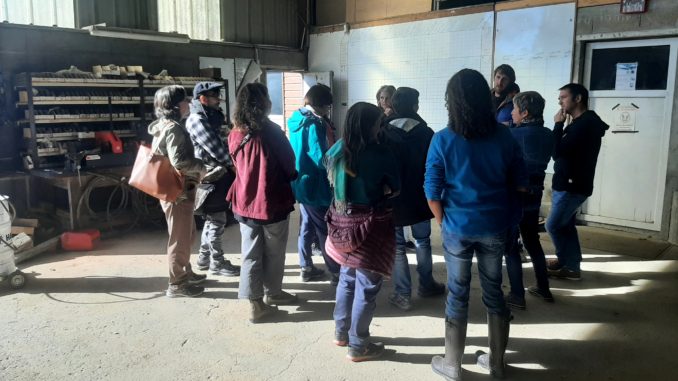
While only so much can be gleaned from one visit to one place, the gender balance seemed reasonable at the CUMA. It was refreshing to see women on the big vehicles – not just tractors – as the mechanic and equipment end of farming has not always been seen as the most women-friendly of places.
It was also interesting to see the importance of scheduling, time management and of the time bank for labour. This means it’s not just machines, it’s also hours of help you can get when you need it. This is a really good sign as regards the goodwill people have in the CUMA and with each other.
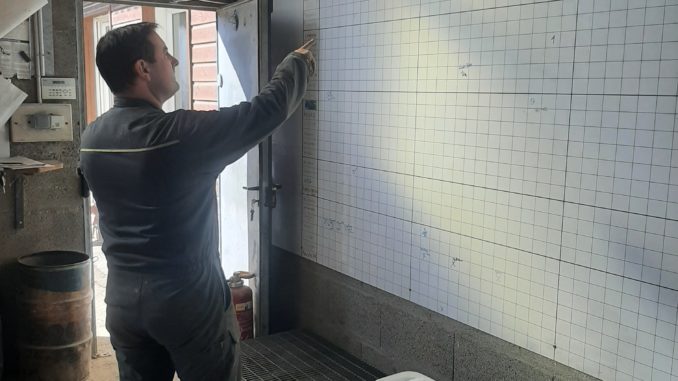
Path dependency? Ça dépend
Real conversations were had in our group on what is called path dependency – the idea that if you build and buy an infrastructure and equipment to suit a certain way of doing things, and borrow money based on this production premise, you risk being locked into that system even if it stops making sense to you some years later. This conversation was fascinating because the CUMA could both enable and constrain this: on the one hand, this CUMA branch’s organic membership base means many machines are either generic or organic specific; so adding new, agroecological equipment periodically, is presumably already how it works.
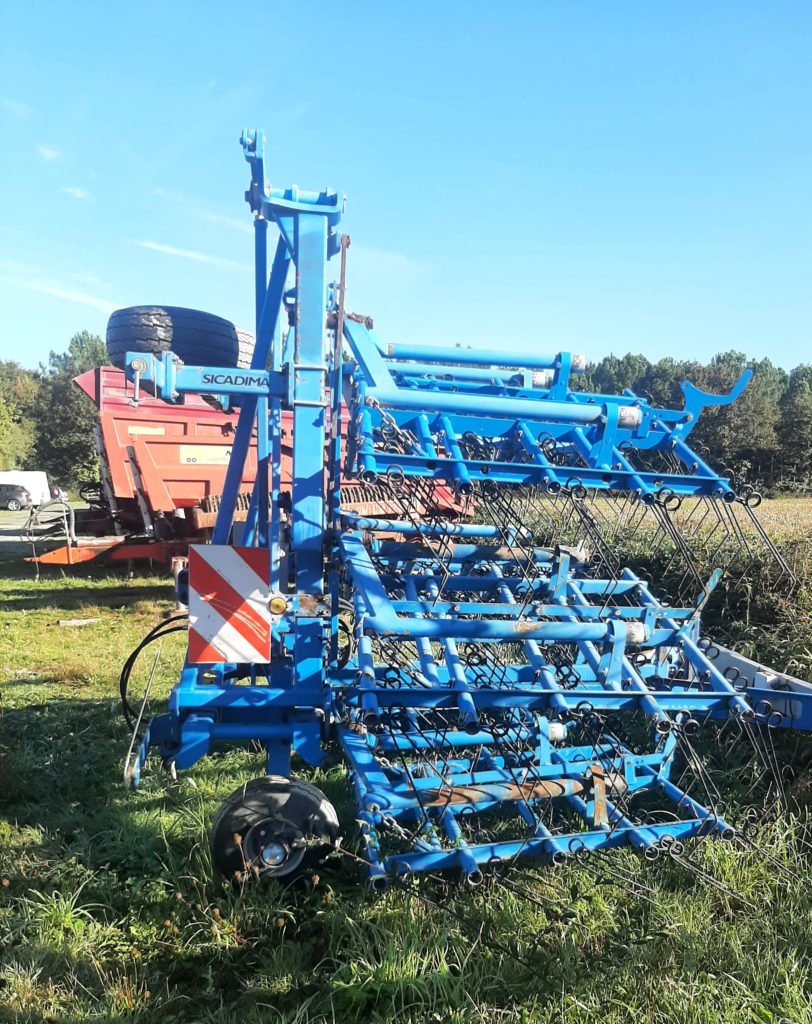
However it’s still fundamentally a ‘big machines’ place, with serious investments made and staff employed to service these machines, and carry out other related tasks. Also, not every solution is a machine. As the old saying goes, when you have a hammer, everything looks like a nail. How would or could a region move deeper into agroecological practices, integrate more mixed farming, or more horticulture, if that was what made sense, if it’s already invested in other machines to such a level? Or, how much longer might a deeper transition take, if certain investments are already made?
Does such a level of, and quality of, machinery lock farmers into a machine solution to what could sometimes be a slightly more social solution?
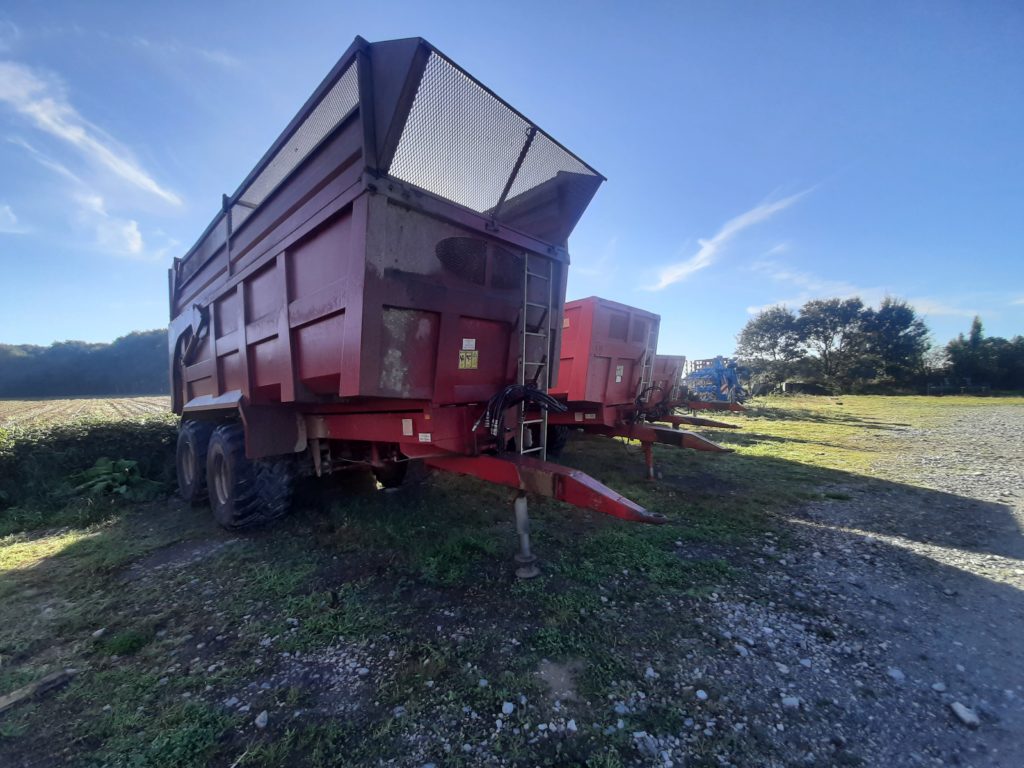
For example, alongside mechanical weeding options, in horticulture, there is also the option of flat bed weeding involving the people – community, or people working or learning on a farm.
If we value revitalising the countryside with young people who want to learn about mixed agroecological practices, such approaches to weeding can also have a place. Of course it seems labour intensive, but that is both a good and a bad thing, depending on the perspective you take.
This may seem quaint, but there are ways and means to make it happen. On the community owned farm I help out with in Ireland, we take in eight young people (18-30 years old) for a year, to learn on our mixed horticulture farm. They come with a budget, in fact the budget also pays for people to manage them. The programme ensures there is a rich learning environment for them, and that there is ample time for project work and free time to spend in the community.
All of this means we bring various resources, and vibrant young people, to our little farm in a small part of rural Ireland. While getting the work done. (note – we need to invest in one of those flat bed weeding systems soon!)
Nevertheless, every region has its specificities, and farming, food and rural needs will differ from place to place. And it goes without saying that a CUMA can easily integrate these slightly-more-social approaches to machinery too.
As was the case so often over these days, we were delighted to be able to have this sort of real conversation, with vibrant CUMAs in operation, rather than bemoaning the lack of machinery co-ops, as is the case in so much of Europe.
Developing a deep, honest culture of political discourse and alliance building.
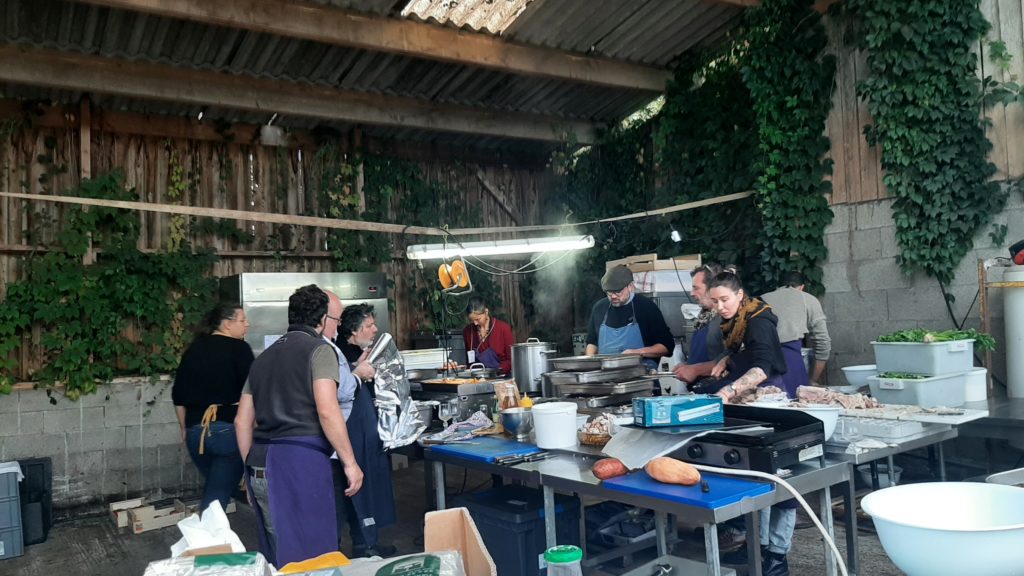
Sometimes it can be a bit arresting to be confronted by very strong language and very honest revelations. However deep listening and a willingness to take on tough issues can also be seen as a hallmark of an advanced relationship.
To this end, the roundtable on violence and abuse in the kitchen, at the Saturday event on the 7 Chemins farm was very worthwhile. Developing an understanding of microaggressions, and their foundation in the wider societal realities of power imbalances stemming from race, class and gender, is important work.
Cooks spoke of the stress on families, to the point of broken relationships and divorce, when small family restaurants keep exploiting their own labour – for very long hours, during holidays, and so on. Another cook spoke of experiencing the shouting abuse of racism as a teen and never returning for years to a kitchen.
The emergence of a culture of supportive work in these less abusive collective ownership contexts, those of the associations involving cooks and farmers running not-for-profit eateries in municipal settings, stood in stark contrast to the sadness that sometimes accompanies family self-exploitation or grand restaurants fully embedded in capitalism and its profit extraction.
We heard of the emergence of solidarity pricing, which is a small step towards redressing economic inequalities. Solidarity pricing means paying according to your means. There are also opportunities to help out to burden-share, for example via solidarity serving (helping with self-serving/clearing away in community or cooperatively run kitchens). These are similar to taxing yourself for local needs as a way to show solidarity with others.
More work needs to be done to keep unpacking the ongoing colonial legacy, generations of patriarchy and class based hierarchies. This is the vital work of bringing everyone into a just transition. If we are making these ecological moves, too slowly but nevertheless now in motion, we can also use “Just Transition” as an opportunity to make things better, not just to avoid things getting any worse.
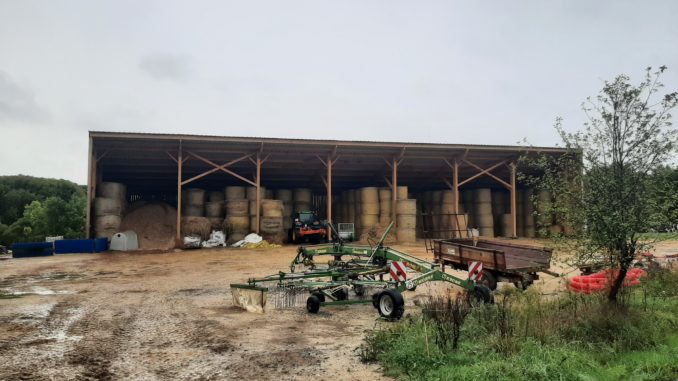
Everywhere is specific
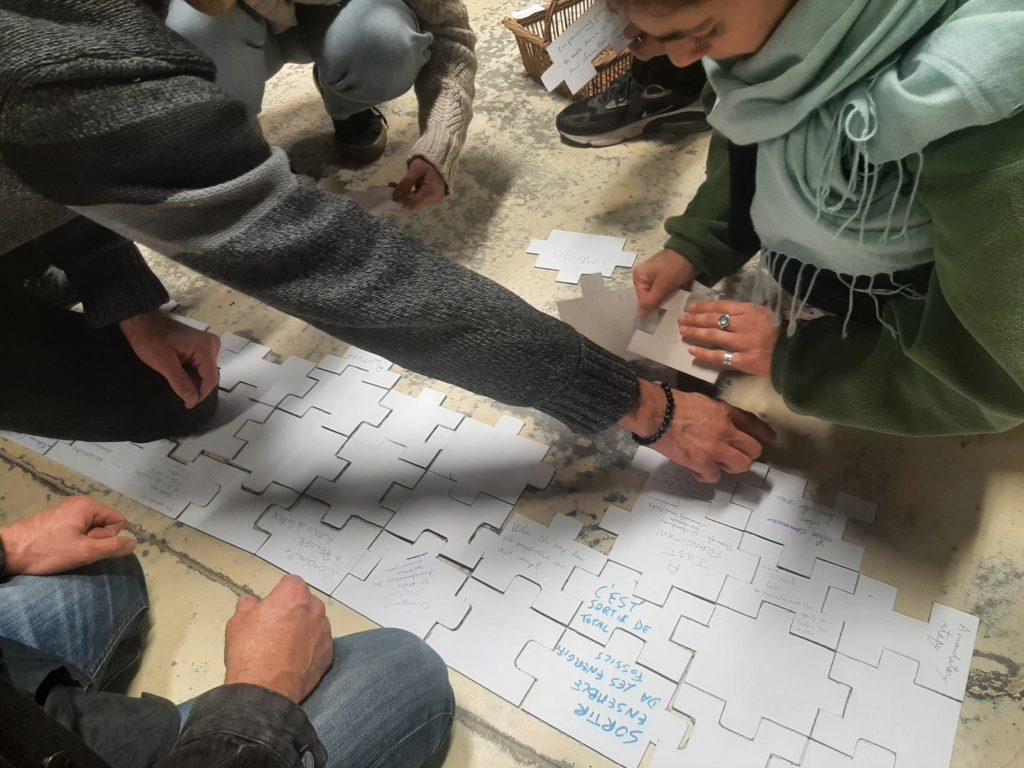
A key learning was also that, while there are certain overarching social, economic and ecological pressures, nevertheless every place is different. We encountered a quite different system of land assessment, of co-operative penetration, of civic engagement, of dialogue and alliance building in this part of the Loire-Atlantique region, than we might encounter elsewhere.
Future work, which could build on these learnings, must scope out the specificities of the place, before attempting to apply what may seem possible in Plessé or elsewhere in the north west of France, to other places. Nevertheless, there are a number of social innovations in practice in this part of the world with much to offer for elsewhere. While the practical implementation will have a local flavour, the style of engagement, the attempt at
What does it all mean?
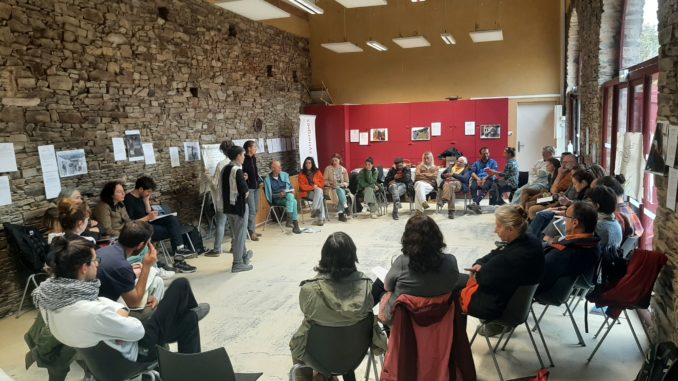
When you encounter a rural, farming and food community as the one encountered in Loire-Atlantique, one which to some extent is actively seeking out opportunities to work together and to share, this resonates with an old idea – that of mutual aid. Each of the four main sections above displayed this – community wellbeing, institutional relationships, systemic cooperation, engagement and alliance building. Each can be seen as an iteration of the spirit of mutual aid as a strategy for building solidarity economies.
This community and institutional engagement work also chimes with ideas as developed in the English speaking world in Cleveland and Preston (UK). With these models, community welling means institutions are asked to step up to the plate, as it were, and be a reliable, core, not-for-profit hub in the region, helping drive the required transition via local circular economic activity where possible. And in these cases local circular trade has increased year on year. In this part of France, we heard of a locally specific iteration of this sort of thought out plan.
There is an efficiency to sharing, as exemplified by the CUMA, which keeps costs down and quality up – this in turns helps at the other end of the foods chain, where people make choices on what to buy. Similarly, not-for-profit restaurants can bake in solidarity elements which have the potential to wider affordability. And when these are working together – farmers and cooks, CUMAs and cooperative eateries – the impact is heightened.
Often the language of efficiency is the language of growth for growth’s sake within a capitalist mindset. Here, within a framework more defined by community wellbeing, mutual aid and solidarity, we can see both costs and benefits are shared more evenly.
Another thing that stood out over this long weekend was the lack of reference to ecological issues. This is not because they were seen as unimportant. It felt more that they were presumed, shared and were underpinning everything. The practical, detailed tasks of working out how to implement more ecological practices, in a way that is socially just, was instead the focus. And this is in fact a very good sign.



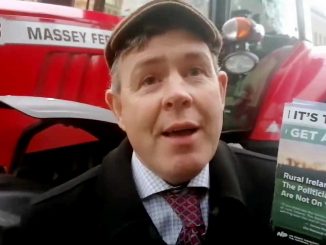
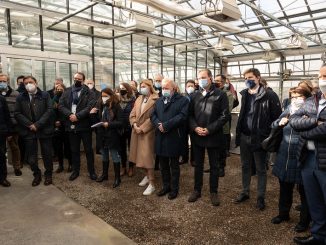
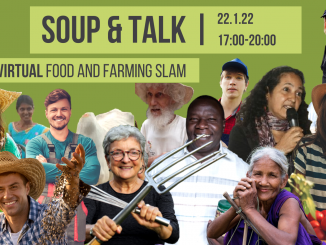
1 Trackback / Pingback
Comments are closed.